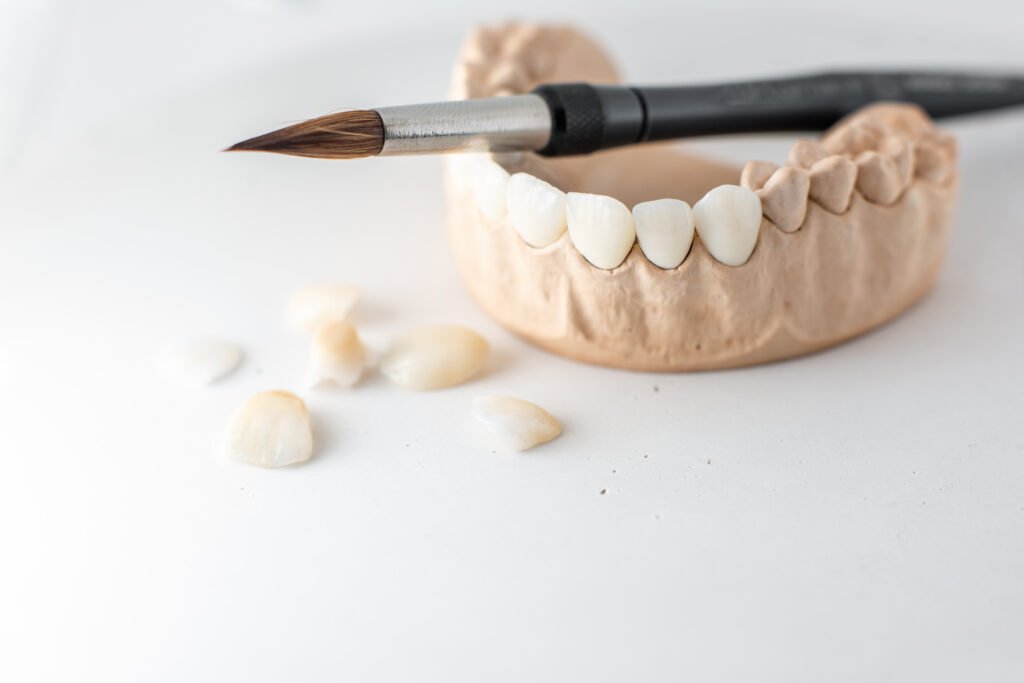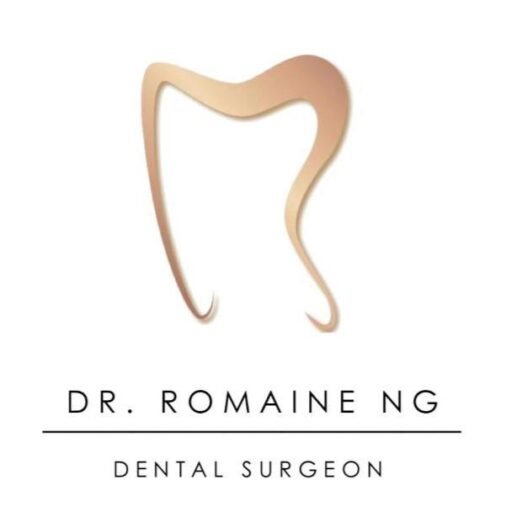Veneers and Crowns

What are porcelain veneers and crowns?
- Porcelain veneers: Thin, custom-made shells of porcelain that are bonded to the front surface of teeth to improve their appearance, shape, and color.
- Porcelain crowns: Tooth-shaped caps that cover the entire tooth to restore its strength, shape, and function.

Veneers and crowns are recommended for:
- Veneers:
- Chipped, cracked, or discolored teeth.
- Gaps between teeth.
- Misshapen or uneven teeth.
- Crowns:
- Severely decayed or damaged teeth.
- Teeth weakened by large fillings or root canal treatment.
- To restore broken or worn-down teeth.
What are the benefits of porcelain veneers and crowns?
- Natural appearance: Porcelain mimics the look of natural teeth, offering excellent translucency and aesthetics.
- Durability: Both veneers and crowns are long-lasting, with proper care.
- Functionality: Crowns restore the strength and functionality of damaged teeth.
- Stain resistance: Porcelain is highly resistant to stains from coffee, tea, and smoking.
What is the process for getting porcelain veneers or crowns? (requires 2-3 visits)
- Consultation and planning: (1st visit)
The dentist evaluates your teeth, discusses your goals, and may use digital simulations to show expected results. - Preparation: (2nd visit)
For veneers, a small amount of enamel (about 0.5mm) is removed. For crowns, the tooth is reshaped to accommodate the restoration. - Impressions:
Molds or digital scans are taken to create custom veneers or crowns. - Temporary restoration:
A temporary veneer or crown may be placed while the permanent one is being made. - Bonding: (3rd visit)
The permanent veneer or crown is bonded to the tooth using dental cement.
FAQs About Veneers and Crowns
How long do porcelain veneers and crowns last?
With proper care, porcelain veneers and crowns can last 10 to 15 years or longer. Regular dental check-ups and good oral hygiene are essential to prolong their lifespan.
Are porcelain veneers and crowns reversible?
Veneers and crowns are not reversible because they require the removal of some tooth structure. However, they can be replaced if necessary.
What are the risks of porcelain veneers and crowns?
Potential risks include:
- Tooth sensitivity: Especially after the preparation process.
- Discomfort or irritation: Temporary discomfort during the adjustment period.
- Damage: Veneers or crowns can chip or crack if subjected to excessive force.
How do I care for porcelain veneers and crowns?
- Brush and floss daily to maintain oral hygiene.
- Use a soft-bristled toothbrush and low-abrasive toothpaste.
- Avoid chewing hard foods or objects (e.g., ice, pens).
- Wear a mouthguard if you grind your teeth at night.
- Visit your dentist regularly for check-ups and cleanings.
Are porcelain veneers or crowns suitable for everyone?
Most people are suitable candidates.
However, individuals with severe gum disease, insufficient tooth structure, or unhealthy teeth may need to address these issues first.
Additionally, those with bruxism (teeth grinding) or poor oral hygiene habits should consult their dentist before proceeding.
Quick Links
Contact
- +852 9532 1766
-
Room 1605, Island Beverley Center,
No. 1 Great George Street, Causeway Bay, Hong Kong
©DR. ROMAINE NG, All Rights Reserved
